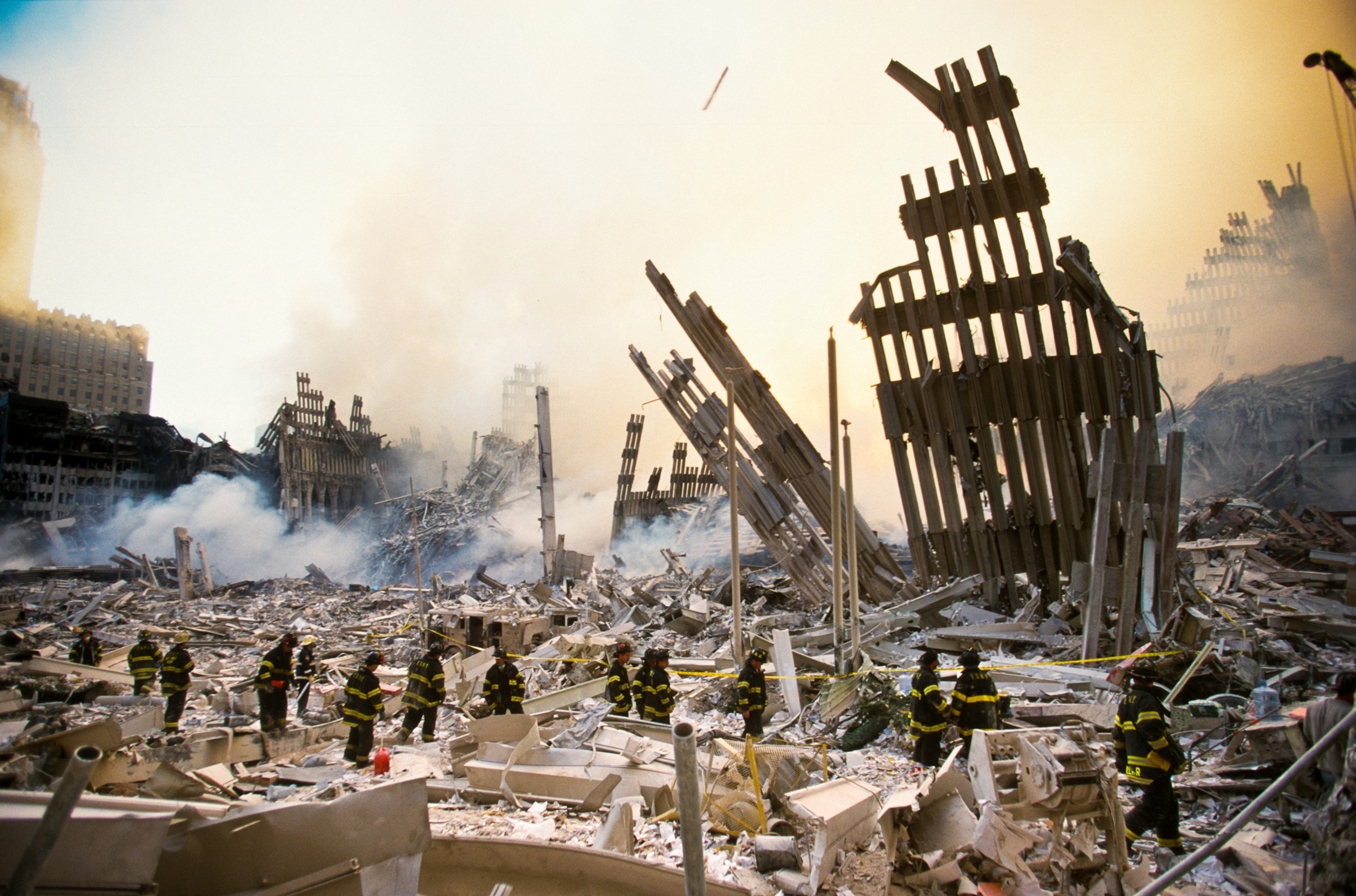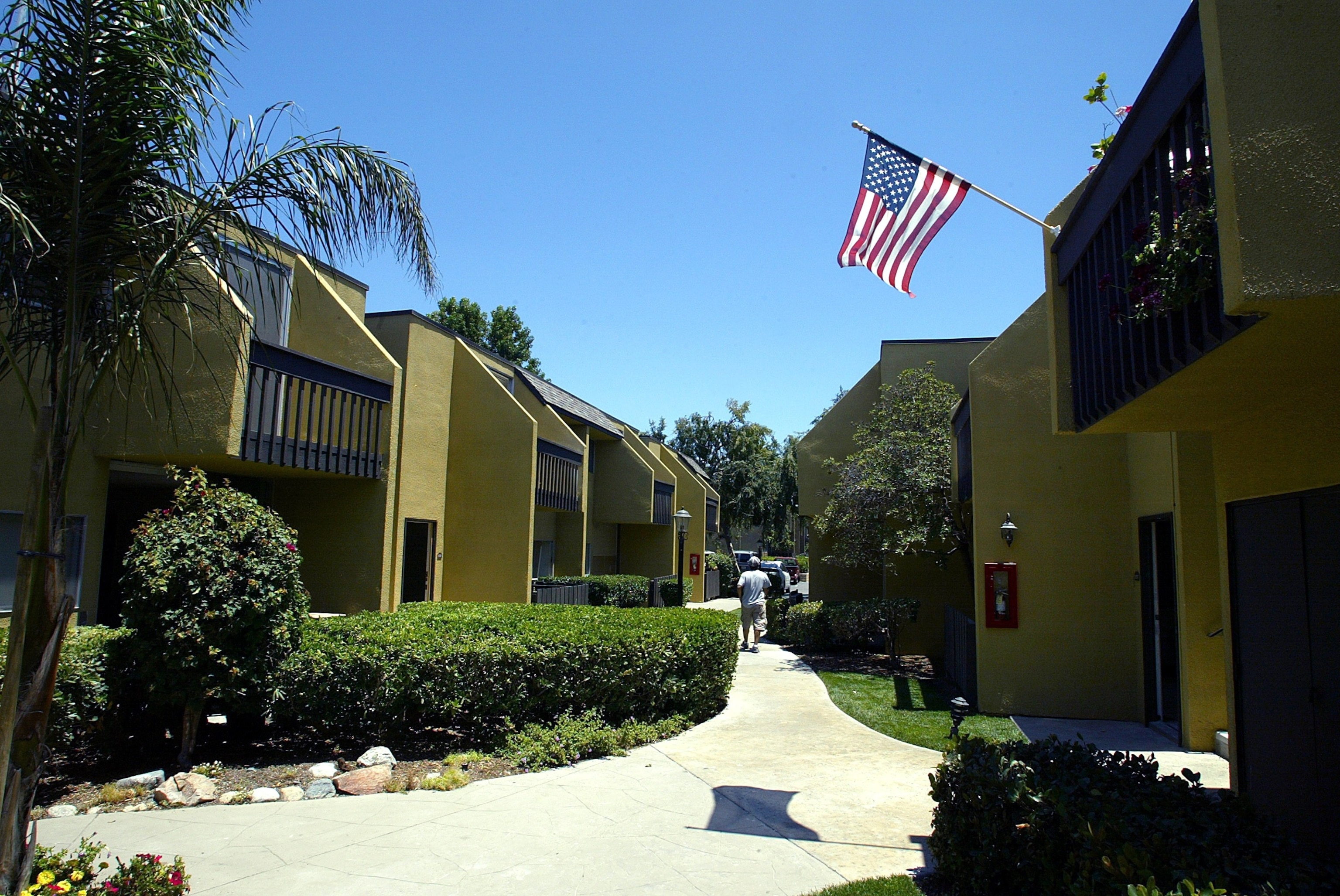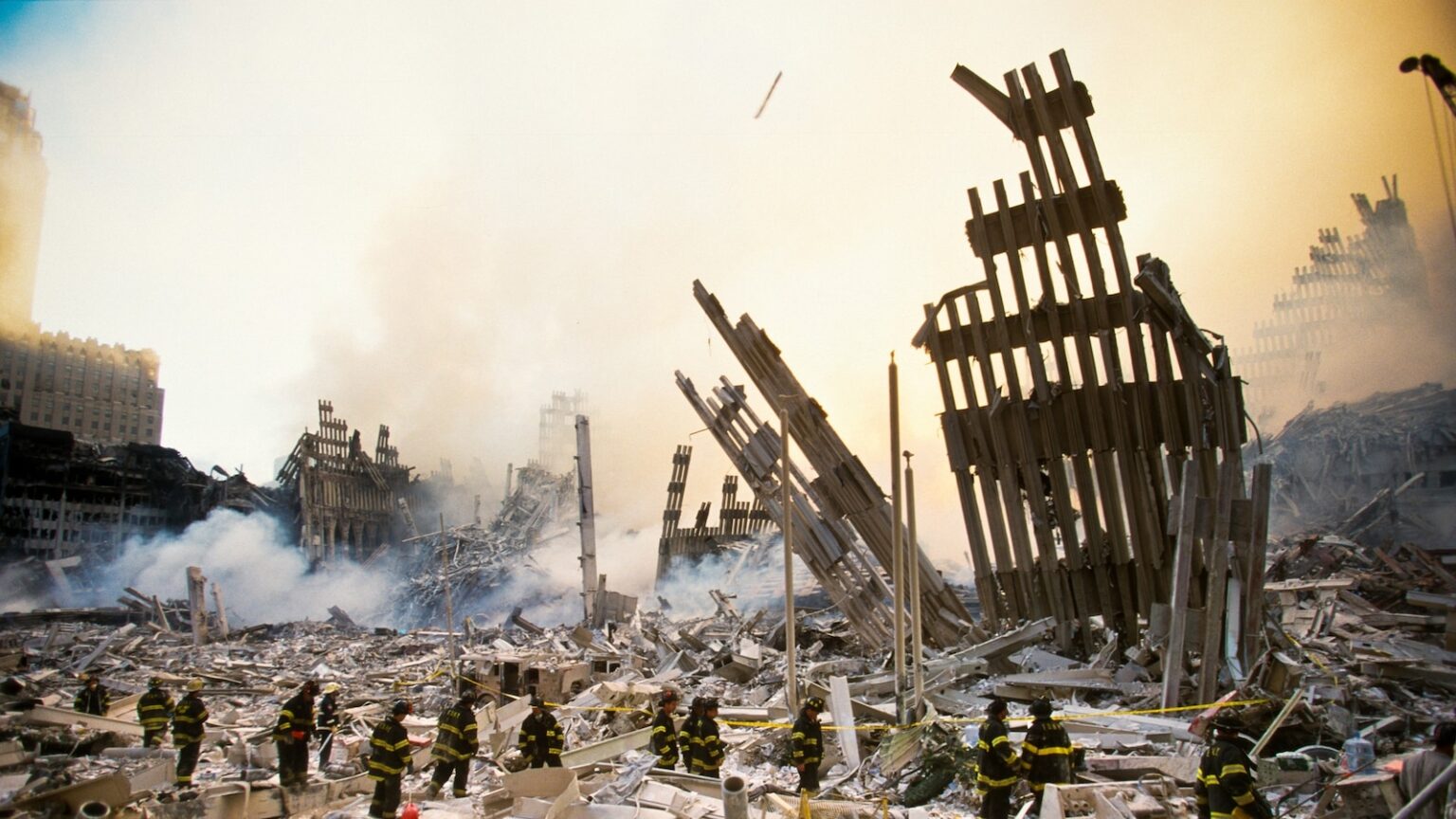Nearly 24 years after the Sept. 11 terror attacks, a federal judge in New York decided Thursday that Saudi Arabia can face a civil lawsuit alleging the kingdom sponsored, aided and supported the al-Qaeda hijackers.
Families of 9/11 victims called the judge’s decision denying Saudi Arabia’s bid to dismiss the lawsuit “the most consequential step yet” in two decades of litigation.
The Washington Momument stands in the background as firefighters pour water on a fire at the Pentagon that was caused by a hijacked plane crashing into the building on Sept. 11, 2001, in Washington, D.C.
Greg Whitesell/Getty Images, FILE
Attorneys representing Saudi Arabia had tried to dismiss claims by victims’ families and estates, first filed in 2003, arguing that, as a sovereign state, it is immune from civil litigation in American courts.
However, U.S. District Judge George Daniels said the families provided “reasonable evidence” that two Saudi citizens — Omar al-Bayoumi and Fahad al-Thumairy — were sent by their government to the United States to assist the hijackers.
“KSA [Kingdom of Saudi Arabia] did not proffer sufficient evidence to the contrary,” Daniels said. “Although KSA attempts to offer seemingly innocent explanations or context, they are either self-contradictory or not strong enough to overcome the inference that KSA had employed Bayoumi and Thumairy to assist the hijackers.”
According to the judge’s opinion, there is evidence the Kingdom of Saudi Arabia sent Bayoumi to San Diego in 1994. The official reason was to pursue education. Plaintiffs contended he was co-opted by Saudi intelligence, which Bayoumi denied.

The rubble of the World Trade Center smoulders following a terrorist attack Sept. 11, 2001, in New York.
Porter Gifford/Corbis via Getty Images, FILE
The Saudis assigned Thumairy to serve as imam of a Los Angeles mosque in 1998. One of his bank accounts received significant funds from a senior member of the Saudi cabinet, the judge wrote in his decision. Thumairy said the money was for mosque expenses.
When al-Qaeda sent two of the hijackers — Nawaf al-Hazmi and Khalid al-Mihdhar — to Los Angeles in January 2000, they were brought to the mosque and introduced to Thumairy, who left the U.S. five weeks prior to the attacks.
About a month after meeting Thumairy, the two hijackers met Bayoumi, who helped them find an apartment in San Diego.

An Al Qaeda network was in place in Southern California to greet and take care of two 9/11 hijackers when they arrived in San Diego, the 9/11 Commission discloses. Two Saudi Arabian 911 plot conspirators lived here at the Parkwood Apartments at 6401 Mt. Ada in San Diego in 1999. The hijackers lived in apartment 136. Photo taken July 23, 2004.
Allen J. Schaben/Los Angeles Times via Getty Images, FILE
On a notepad seized from Bayoumi, authorities said they saw a handwritten sketch of an airplane along with some numbers, calculations and notes.
Plaintiffs alleged that the Saudi government engaged Thumairy and Bayoumi to carry out covert activities in the U.S. that provided material support and assistance to the hijackers.
The Saudis have denied those allegations.
A group representing 9/11 families, who have been pushing for the lawsuit as it has wended it way through the courts over the years, celebrated the judge’s decision.
“Nearly a quarter-century after we lost our loved ones, Judge Daniels’ ruling gives us the chance to finally pursue accountability, justice, and closure in their memory,” said Brett Eagleson, president of 9/11 Justice, a coalition of 9/11 families.
“We have presented overwhelming evidence that the Kingdom is complicit in the 9/11 attacks, and a federal judge agrees,” Eagleson said. “Now, we are prepared to present even more evidence showing that Saudi Arabia was complicit in the attacks that killed nearly 3,000 innocent Americans.”
The ruling marks the first time a federal court has explicitly opened the door to testing the families’ case against Saudi Arabia, which alleges Saudi officials or agents assisted the 9/11 hijackers and should be held liable.
The families can now move forward with evidence collection and, they hope, depositions of Saudi officials.
For many families, the pursuit of justice is deeply personal. Eagleson was just 15 when he lost his father in the attacks.
“We’ve never recovered him, not even a trace,” he told ABC News in 2021.
The post Federal judge allows families of 9/11 victims to sue Saudi Arabia appeared first on abcnews.go.com

